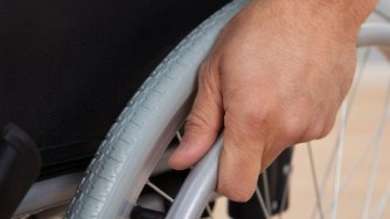Case study
Head or brain injury compensation claims

If you've suffered a head or brain injury because of an accident or medical negligence, talk to our specialist team for a free initial assessment of your case.
Compensation payouts for head and brain injuries
Every brain or head injury claim is unique. After investigating your case, your solicitor will work out how much compensation you should be paid. Typical factors that affect the amount of compensation awarded are:
- the severity of injury to the brain
- whether the injury is permanent
- whether further medical treatment is required
- impact of the injury, such as loss of independence, current and future care and rehabilitation needs
- ability to return to work
- loss of earnings, income and any other financial losses
Payout ranges for head and brain injuries
Solicitors use several resources to work out how much compensation someone should receive. One of those resources is the Judicial College Guidelines. These are guidelines in England and Wales that contain guidance on how much money people should receive for various types of injury.
The Judicial College Guidelines are used when working out general damages. General damages compensate the injured person for loss, pain and suffering caused by their injury.
Compensation payouts also include special damages. These are worked out by calculating financial losses that the person faces due to their injury. For more information, you can learn more about how injury claims are calculated.
The following payout ranges form part of general damages compensation. If you factor in special damages, your claim could be worth much more.
Acting on behalf of an injured person
If an injured person can't represent themselves during their claim, a family member can act on their behalf as a 'litigation friend'. This means the injured person can still seek compensation, even if they:
- can't act due to their injuries
- are under 18
Types of head and brain injuries
What head or brain injury compensation can help with
The main purpose of compensation is to get the person as close as possible to how they were before the injury.
It is not always possible to put things right for someone who has suffered a serious head or brain injury. In these cases, we can try to reduce the impact of these injuries by seeking:
- compensation
- assessments and advice from independent medical experts
- adaptations to home and work environments
- rehabilitation
- care packages
These measures can often help to improve the injured person's quality of life and restore a level of independence.
Paying for rehabilitation of a brain injury
Rehabilitation is often important for brain injury recovery. This includes therapies like:
- physiotherapy
- speech therapy
- occupational therapy
In many brain injuries, the sooner the patient starts rehabilitation, the better the outcome. Because these cases can take years to settle, your solicitor should try to secure interim payments to pay for rehabilitation costs. This means the injured person can start their treatment as soon as possible.
This process will involve assigning a case manager, who will work with the injured person to create a long-term care plan. This will include details of the injured person's needs, as well as a plan to support them and their family.
How our solicitors will work with you
Our serious injury solicitors are experts in handling life-changing brain injury claims. They understand that head and brain injuries affect both the victim and the people closest to them.
If the injury was caused by medical negligence, the case will be assigned to a specialist solicitor who only deals with those types of claims.
When we take on a head or brain injury case, we will:
- work with injured person to build a lasting relationship built upon a deep understanding of the needs of them, their family and their carers
- work to get the injured person's condition assessed by a medical expert as soon as possible
- assemble the evidence and supporting information to prepare a claim
- calculate the amount of head injury compensation and damages that the injured person should receive
Head injury claims are often complex and may take a long time to resolve. It is important that the amount of compensation secured will provide for the injured person's future needs.
We negotiate with the other side to secure an admission of liability (fault). If the other side deny liability for causing the injuries, we can litigate (sue them) to secure a fair compensation settlement. If we need to take the case to court, our expert solicitors and litigation lawyers have many years' experience. We can also call upon specialist barristers when needed.
No win no fee head and brain injury claims
When we take on your claim, there will be no nasty surprises. Our No Win No Fee agreements mean that if your claim is unsuccessful, there is no financial risk to you as all your legal fees are covered.
This is done by entering into and complying with the terms of a no win no fee agreement. We'll also ask you to take out and comply with the terms of an After The Event (ATE) insurance policy, when appropriate.
About Co-op Legal Services
As part of the largest Co-operative organisation in the UK, Co-op Legal Services works to ensure that our clients receive the best legal advice and support services available from our teams of personal injury and clinical negligence solicitors, legal executives and staff.
We are regulated by the Solicitors Regulation Authority (SRA) and several of our Personal Injury Solicitors are members of the Association of Personal Injury Lawyers (APIL).
Co-op Legal Services has over 800 staff working in different businesses with offices in Manchester, Bristol, Stratford-upon-Avon, Sheffield and London.




